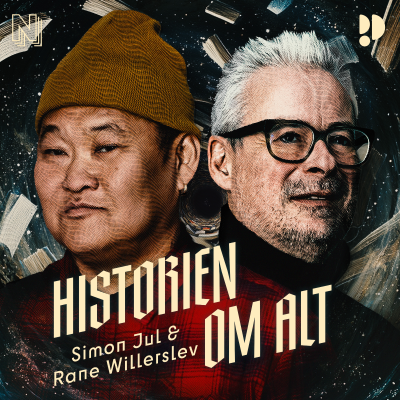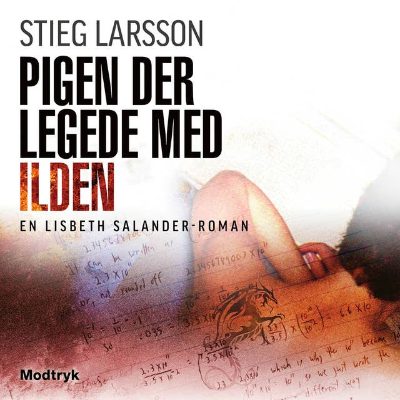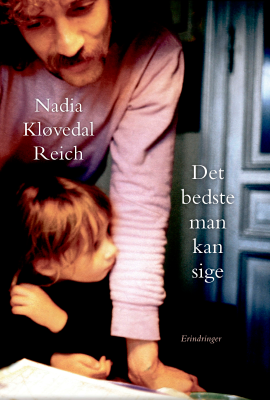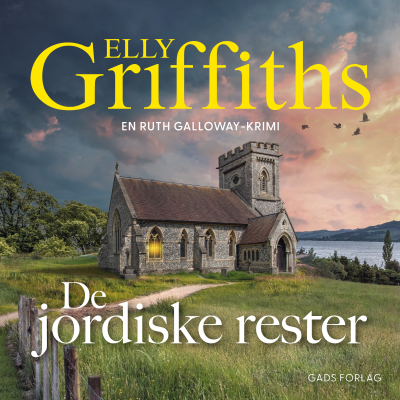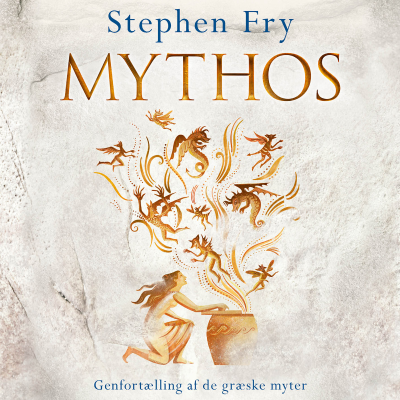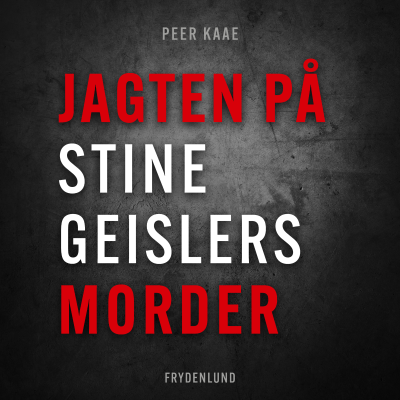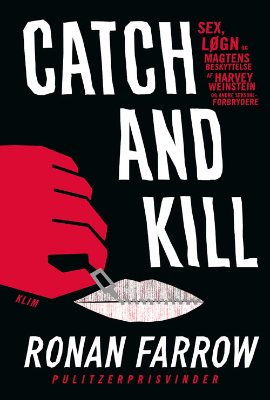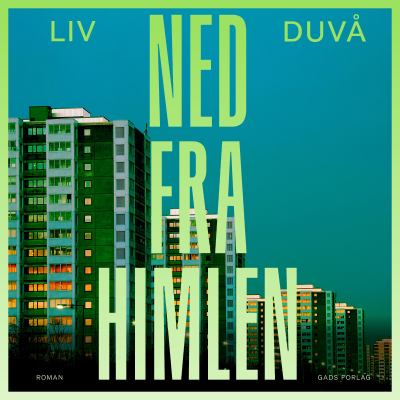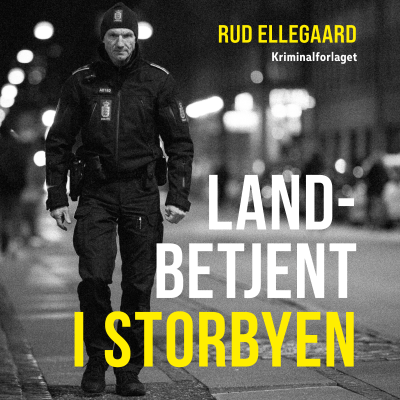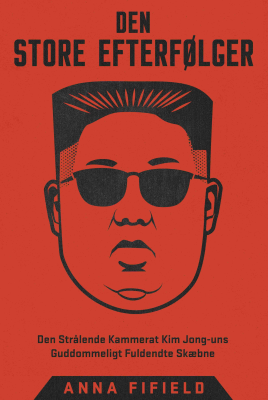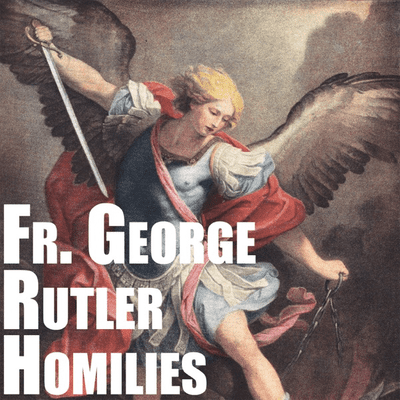
Father George William Rutler Homilies
Podcast by Fr. George William Rutler
Start 7 days free trial
99 kr. / month after trial.Cancel anytime.

More than 1 million listeners
You’ll love Podimo and you’re not alone
Rated 4.7 in the App Store
About Father George William Rutler Homilies
The homilies of Fr. George William Rutler, pastor of the Church of St. Michael the Archangel in New York City.
All episodes
176 episodes6 December 2020The Second Sunday of Advent Mark 1:1-8 + Homily 15 Minutes 15 Seconds Link to the Readings: https://bible.usccb.org/bible/readings/120620.cfm [https://bible.usccb.org/bible/readings/120620.cfm] (New American Bible, Revised Edition) Note: A substitute priest celebrated Mass and preached today. The attached homily is from 10 December 2017, Advent II, using the same readings as today. From the parish bulletin of Sunday 6 December 2020: (Adapted from December 6, 2015*) During the 1976 Eucharistic Congress in Philadelphia, a relatively unknown figure, the Archbishop of Krakow and future Pope John Paul II, said: “We are now standing in the face of the greatest historical confrontation humanity has ever gone through. I do not think that wide circles of the American society, or wide circles of the Christian community realize this fully. We are now facing the final confrontation between the Church and the anti-church, between the Gospel and the anti-gospel. This confrontation lies within the plans of Divine Providence; it is a trial which the whole Church . . . must take up, and face courageously.” Those words in Philadelphia certainly were as prophetic as the voices in Judea thousands of years ago. In the subsequent generation, crammed with breathtaking events of universal and historic significance, heroic and tragic, we can count the manifold ways in which that future pope seemed to see the judgment of God at work. The Second Sunday of Advent points attention to two kinds of judgment. First, and most immediate for the human condition, is the particular judgment each of us will experience at the moment of death, when our life passes before us. Christ as Judge makes no arbitrary decisions, but instead avails himself as the measure of our compatibility with his love. The other judgment is the social judgment of the whole world. This will happen at the end of time when all created things and time and space themselves will end. There was an intimation of this in the earthquake when Christ died on the cross, as prelude to his resurrection when he could “die no more” (Romans 6:9). Confronting the Judge, we have the option of two kinds of fear. The first is the perplexity of the person who knows only self-love and has lived life as though the self were God. The second is the joyful awe sensed by the person who has loved God and neighbor as much as the self. In the moral order, people have to make judgments for the sake of sanity, but those judgments must be based on standards outside one’s sentiments, similar to the way we measure objects according to the standards set by the Bureau of Weights and Measures. Jesus submitted to the judgment of Pontius Pilate, and by so doing, he took on the suffering of those who are wrongly judged. Jesus did not deny Pilate’s right to pass judgment; rather, he reminded Pilate that he was answerable to a higher authority: “You would have no power over me were it not given to you from above” (John 19:11). The command not to judge others is about defining justice without accountability to God. “He who rejects me and does not receive my words, has one who judges him; the word that I have spoken will be his judge on the last day” (John 12:48). *During this season we shall run columns from A Year with Father Rutler, published by Sophia Press
29 November 2020The First Sunday of Advent Mark 13:33-37 + Homily 13 Minutes 42 Seconds Link to the Readings: https://bible.usccb.org/bible/readings/112920.cfm [https://bible.usccb.org/bible/readings/112920.cfm] (New American Bible, Revised Edition) Note: A substitute priest celebrated Mass and preached today. The attached homily is from 3 December 2017, Advent I, using the same readings as today. From the parish bulletin of Sunday 29 November 2020: (Adapted from November 29, 2009*) The season of Advent is lyrically beautiful if one is willing to engage the realities it teaches: Death, Judgment, Heaven and Hell. The alternative is to create a parallel universe, partying in a faux Christmas confection of jingle bells, dancing elves, self-conscious bonhomie, and ignoring the Incarnation of God. T.S. Eliot belabored the obvious in saying, “Humankind cannot bear very much reality.” Reality, nonetheless, has the last say. Advent focuses on the reality of life as a sacred gift from God, and not a morally indifferent biological accident to be manipulated by human will. Pope Paul VI was scorned for saying this in his prophetic encyclical Humanae Vitae, whose predictions have been realized with frightening rapidity. The first illusion it condemned was artificial contraception as morally good. Those cultures that ignored reality are entering what the European Union now admits is a demographic “catastrophe.” The dwindling population rate is leading to the collapse of social welfare benefits and the bankruptcy of Europe’s cradle-to-grave welfare state. The cradles are emptying as fast as the graves are filling. A report presented to the European Parliament by the Institute for Family Policies says, “Europe is plunged in an unprecedented demographic winter and has become an elderly continent, with a large birth deficit, fewer marriages and more of them broken, homes emptying.” The report projects there will be 27 million fewer Europeans by 2050, with every third inhabitant over 65. Unspoken is the effect of Islamic immigration to fill the vacancies and replace European civilization. What is chillingly unreal about the report is its acceptance of those eugenic policies that brought on the catastrophe. Our own nation is on the edge of entering the same illusory world of a bright future that ignores the facts of life. From a secular perspective, Johns Hopkins University sociologist Andrew Cherlin has written about the harm done to children by the “Marriage-Go-Round” in the United States. Marriage has become a status symbol rather than an essential core of society. Marriages in our country are even more ephemeral than in Europe. After just five years of marriage, 23 percent of Americans had separated or divorced, compared with 12 percent in West Germany, 8 percent in Great Britain, and 3 percent in Italy. Dr. Cherlin’s approach is utilitarian and ultimately defeatist: “I think our best hope is to find better ways of coping with the culture we have.” Christ does not call us to cope with the culture, but to transform it. Transformation happened in a decaying Roman Empire and it can happen in our quaking modern imperium, but only by facing reality. In their November 2009 annual conference, the US bishops issued a pastoral letter on marriage, which realistically spoke of good and evil. It is already being criticized by the sorts who mocked Humanae Vitae. But they are growing very grey. *During this season we shall run columns from A Year with Father Rutler, published by Sophia Press
22 November 2020Our Lord Jesus Christ, King of the Universe Matthew 25:31-46 + Homily 17 Minutes 45 Seconds Link to the Readings: https://bible.usccb.org/bible/readings/111522.cfm [https://bible.usccb.org/bible/readings/111522.cfm] (New American Bible, Revised Edition) Note: A substitute priest celebrated Mass and preached today. The attached homily is from 26 November 2017, the Solemnity of Christ the King, using the same readings as today. From the parish bulletin of Sunday 22 November 2020: These days I am frequently asked if we are living in the “End Times.” As the grace of Holy Orders does not make me a seer, I defer, as is prudent, to the King of Universe: “Watch therefore, for you do not know what hour your Lord is coming” (Matthew 24:42). So the answer simply is that we do not know, but as the Coast Guard’s “Semper Paratus” motto exhorts, we must constantly be prepared. That vigilance is contingent on everyone’s immediate obligation to be recollect for the end of one’s own life. For the Christian, this is a stimulus to faith rather than neurosis. “Do not be anxious about anything, but in every situation, by prayer and petition, with thanksgiving, present your requests to God” (Philippians 4:6 The prophets were not like the boy who cried “Wolf!” They were inspired by God to tell what he wants his people to know about spiritual readiness, so that his kingly rule is that of a shepherd guiding his flock through the variables of human experience. In the filmThe Lion in Winter, Katharine Hepburn as Henry II’s queen, Eleanor of Aquitaine, remarks with regal resignation about her dysfunctional family: “What family doesn’t have its ups and downs?” Christ’s family the Church has always had its ups and downs, often big time, and many times it has been the lamentable case that the Shepherd King is tasked with herding cats rather than sheep The Church began with a crucifixion when no one expected a resurrection. That sequence of death and life is repeated time and again. There were the persecutions under so many Caesars, heresies with volatile schisms in consequence, sieges, desecrations, destructions, corruptions and civilly institutionalized blasphemies. But each of these crucifixions was followed by a resurrection. This is to be remembered when distress in the Church is accompanied by a confluence of unrest and fear in politics and pandemics. Through it all, the Carthusian motto grows ever more stolid and incontestable: “ Stat Crux dum volvitur orbis”—the Cross stands steady while the world revolves. This is most vivid when the revolving world seems to be whirling out of control On November 5, the ninety-year-old Cardinal Tumi of Cameroon was briefly kidnapped by separatists who demanded that he endorse their propaganda. He told his captors that he must preach only what is true: “Nobody has the right to tell me to preach the contrary because I was called by God.” In every cultural crisis, this is the kind of witness that transcends any attempt to speculate about the end of the world, for it takes its strength from the assurance that Christ Crucified in Jerusalem is also Christ the King of the Universe His dominion is an everlasting dominion that shall not be taken away,his kingship shall not be destroyed. (Daniel 7:14)
15 November 202033rd Sunday in Ordinary Time Matthew 25:14-30 + Homily 21 Minutes 03 Seconds Link to the Readings: https://bible.usccb.org/bible/readings/111520.cfm [https://bible.usccb.org/bible/readings/111520.cfm] (New American Bible, Revised Edition) Note: A substitute priest celebrated Mass and preached today. The attached homily is from 19 November 2017, the 33rd Sunday in Ordinary Time, using the same readings as today. From the parish bulletin of Sunday 15 November 2020: Several of our Lord’s parables have to do with productivity in one form or another: The Sower, The Mustard Seed, The Tares, and then there is today’s, which is specifically about money (Matthew 25:14-30). In Greek currency, a talanton, as a measure of silver, was the equivalent of 6,000 Roman denarii. Establishing modern equivalences of money is notoriously difficult, but since a single denarius was worth a day’s wages, the value of a talent was great. This parable is about more than wealth management. In English, the word “talent” is an insightful pun, because this is about investing whatever spiritual graces God gives “to each according to his ability.” Thus, the expression “Keep the Faith” has its limits, because the same Faith that is to be kept and cherished in our hearts, can only flourish if it is spread to others. Even in mercantile economics, as St. John Paul II taught in the encyclicalCentesimus Annus, wealth is not the product of static human resources, but of human creativity in their use. And the greatest resource is life itself. Three men are given different talents, which the first two put to work and by their investments make a profit. The third, whose fear of his master is more on the order of servile fear, which causes timidity, rather than the holy fear that engenders courage, is overly cautious and can only excuse himself by telling his master, “I knew you to be a hard man.” He becomes the spokesman for timorous sorts who apply human psychology to Christ, whose judgments are just, as if that justice excluded productive mercy. This is an illuminating wisdom in these dark days of our nation, when the temptation might be for Christ’s disciples to be discouraged and for the Church Militant to seek shelter from a tempestuous culture. By way of metaphor, one is reminded of the highly decorated British general, Leslie Rundle (GCB, GCMG, GCVO, DSO, etc.). This estimable man engaged combats from the Zulu War through the First World War. A man of caution and deliberation, he was careful to protect the lives of his soldiers, for which they were understandably grateful. He was a well-intentioned exemplar of the dictum of Shakespeare’s less exemplary Falstaff: “The better part of Valor is Discretion.” But that can be overdone. While Rundle took few risks, he may have occasionally lost the chance to charge forward into enemy ranks. Then there was the dithering figure of General McClellan, who lost opportunities at Antietam. An exasperated Lincoln telegraphed him: “If General McClellan does not want to use the Army, I would like to borrow it for a time, provided I could see how it could be made to do something.” It would be terrible in our conflicted times, to hear our Lord say that to us.
8 November 202032nd Sunday in Ordinary Time Matthew 25:1-13 + Homily 17 Minutes 13 Seconds Link to the Readings: https://bible.usccb.org/bible/readings/110820.cfm [https://bible.usccb.org/bible/readings/110820.cfm] (New American Bible, Revised Edition) Note: A substitute priest celebrated Mass and preached today. The attached homily is from 12 November 2017, the 32nd Sunday in Ordinary Time, using the same readings as today. From the parish bulletin of Sunday 8 November 2020: In the late nineteenth century, a New England college dean wrote: “The youth who loves his Alma Mater will always ask, not ‘What can she do for me?’ but ‘What can I do for her?’” One of his students, a clergyman named George St. John, paraphrased that as a locution to boys when he became headmaster of the Choate School in Connecticut: “Ask not what your school can do for you, but rather ask what you can do for your school.” One of the boys who heard that in the 1930s, John F. Kennedy, made the diction more resonant in his inaugural address of 1961: “Ask not what your country can do for you – ask what you can do for your country.” Although he had speechwriters of acumen, one will not gainsay naïve clients of Kennedy for pillaging what was not his own. As Anatole France said, “When a thing has been said and said well, have no scruple. Take it and copy it.” Today those lines could not be uttered approvingly by the political party to which Kennedy belonged. Because of the exigencies of copy editors, I am writing these lines before the national election, so I refrain from predicting the various state votes. But as a client of Saint Michael the Archangel, who is the patron of my parish, I am confident that this election, because the issues it is engaging are of the highest portent for our moral order, will have results that transcend the consequences of customary politics. This election will have exposed the corruption of the mainstream and social media, by their acquiescence to subjective journalism and the wanton censorship of reports of inconvenient scandals in high places. Holy Church has been under attack, as borne witness by the need for armed security guards in our sanctuaries. Our own church in Hell’s Kitchen has been assigned armed security guards. This is not just a political assault, for the brutal killing of Christians worshipping in France shows the hatred of Christ, who said in words as thrilling as they are ominous: “Blessed are you when they revile and persecute you, and say all kinds of evil against you falsely for My sake” (Matthew 5:11). “…for My sake.” All that we do, in every aspect of life, and in every moment of the day, if done for His sake, will reap an unimaginable reward. If we want things only for ourselves, they will fester in the soul, confusing the intellect and weakening the will, but if we want the good of others that will redound to the good of Church and Nation. Abundant are the demagogues who would promise what the government will give man, but they offer it in return for our souls. For Christians, it is a choice between Mother Church and Nanny State. That could be a costly exchange.

Rated 4.7 in the App Store
Start 7 days free trial
99 kr. / month after trial.Cancel anytime.
Exclusive podcasts
Ad free
Non-Podimo podcasts
Audiobooks
20 hours / month



